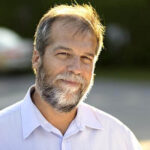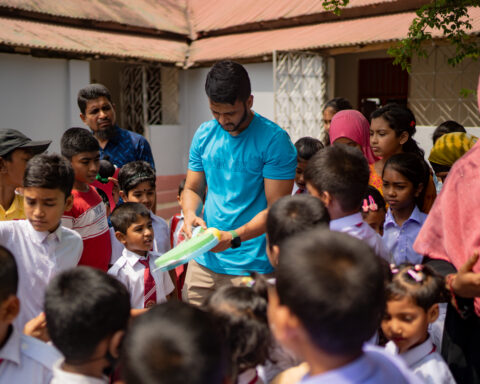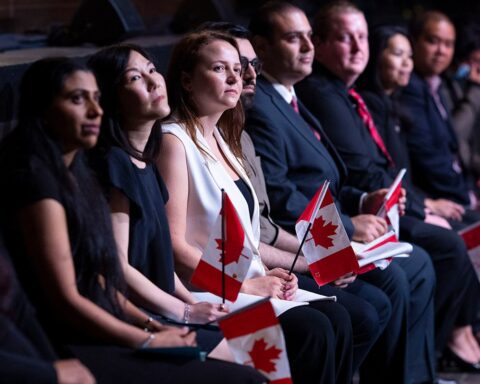Sometimes, small things point to large changes.
During my short visit last week to Dhaka, the capital of Bangladesh, I had the opportunity to sit down with one of that country’s leading political scientists to talk about terrorism and PVE – i.e. Preventing Violent Extremism, the newest iteration of CVE – Countering Violent Extremism.
We had a wide-ranging chat in his book-lined office and I also learned that he had studied at Carleton University in Ottawa just before I became a sessional instructor in linguistics at that institution. Small world indeed. Our conversation was very illuminating, especially when it came to the topic of a shift in Islamic influence in Bangladesh.
So, what was that ‘small thing’? You may see this as insignificant, but I think it speaks volumes. There is apparently a tendency in Bangladesh these days to replace the everyday phrase ‘khoda hafez’ (literally ‘may God protect you’ but colloquially used to mean ‘goodbye’) with ‘allah hafez’.
The difference, of course, is the substitution of the Arabic word for God (‘Allah’) for the Persian one (‘khoda’).
This tiny shift is nothing less than a sign of the invasion of conservative, intolerant Sunni Islam into the former East Pakistan (more on that later).
The growing dominance of Salafi Sunnism is fairly recent and worrisome.
Bangladeshi Islam has traditionally been Sunni of the Hanafi school with an important influence from Sufi interpretations of the faith. The growing dominance of Salafi Sunnism is fairly recent and worrisome. Several terrorist attacks and assassinations have been attributed to Salafi jihadists in the past few years.
The victims have come from communities which the Salafis see as enemies (in truth, a very long list): Sufis, Shia, non-Muslims (Hindus, Christians), gays… Perhaps the most serious attack – in what has been called Bangladesh’s ‘9/11’ – was the July 1, 2016 massacre of non-Muslims at a cafe in Dhaka, an operation masterminded by a Canadian terrorist from Windsor, Ontario.
The uptick in violence has many Banglas worried. Everyone with whom I spoke – government agencies, the UN, academics – are all concerned about where this violence is headed.
And, it is not only among the Salafi jihadis that violence is being promoted. Political parties too are jumping on the bandwagon. It does not help that power in the country has been seesawing over the past decade between two female-led parties that routinely gang up on the other once in office. The current government, led by the Awami League, has also given in to some outrageous ideas by radical Islamists, such as a demand to remove a statue of Lady Justice from the grounds of the Supreme Court. This ‘dalliance’ with extremists is not helpful.
The apparent sanction of violence in the name of religion threatens to lead to more deaths.
Bangladesh faces a difficult decision in the run up to national elections next year. The government of Prime Minister Sheikh Hasina can continue to do deals with the Salafis in order to court their support, but this will only cause more hardship and maintain the transformation of tolerant Bangladeshi Islam to intolerant Salafism.
At the same time, the regime has to confront the serious Islamist extremist (i.e. terrorist) threat, but must do so while keeping human rights in mind. The elite Rapid Action Battalion, a counter terrorism body, has been criticised by some rights groups for extra-judicial killings and disappearances.
Bangladesh was born in a bloody civil war in 1971 when the former East Pakistan split from what we now call Pakistan. The powers that be in Islamabad were not too happy with the independence desires of the eastern half of a country – geographically separated by India in between – and engaged in a slaughter whose victims are estimated at anywhere from 300,000 to three million people.
In fact, trials of those responsible for the massacre are still being held these days. It would be truly tragic if another wave of violence is on the horizon.
But back to that change in ‘goodbye’. Salafis hate the Shia more than any other group and believe that the only good Shia is a dead one. Their intolerance has even extended to rejecting a Bangla phrase that contains a Farsi (Persian) word (recall that most Persians are Shia Muslims) for an Arabic one (NB linguistically this makes little sense: Bangla and Farsi are related Indo-European languages whereas Arabic is a non-related Semitic language).
This may sound silly and trivial, but sometimes we do have to pay attention to the small things in life.
Phil Gurski worked in the Canadian intelligence community for more than 30 years. His latest book, The Lesser Jihads, will be published on September 15.
Phil Gurski is a former terrorism analyst at the Canadian Security Intelligence Service (CSIS). He specializes in radicalization and homegrown Al Qaeda/Islamic State/Islamist-inspired extremism and has published several books, including the forthcoming When Religions Kill: how extremists justify violence through faith.” He is a member of New Canadian Media’s board of directors.





